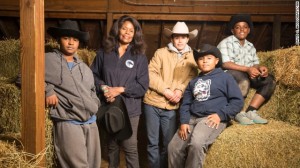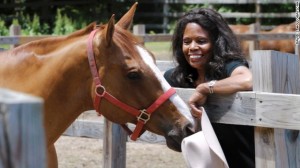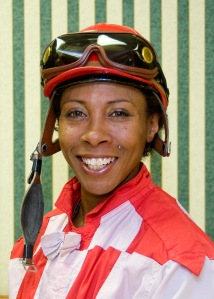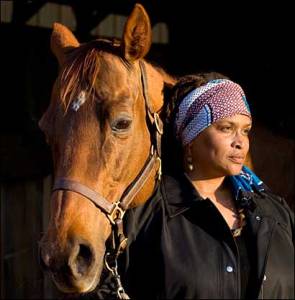Five facts about Uneku Atawodi, only black woman in professional polo
 Despite her popularity among the elite polo-playing class, she is little known outside the sport. This is not only because polo is largely a man’s sport but also in large part due to the fact that the sport only enjoys fringe media coverage, a fraction of the huge media spotlight that sports like football and basketball enjoy globally.
Despite her popularity among the elite polo-playing class, she is little known outside the sport. This is not only because polo is largely a man’s sport but also in large part due to the fact that the sport only enjoys fringe media coverage, a fraction of the huge media spotlight that sports like football and basketball enjoy globally.Below are five highpoints of the polo journey of Uneku Atawodi, the only black woman in the world playing the game professionally.
Unable to enlist the support of Mum and Dad
Uneku was only 16 when she informed her parents of her interest in playing polo professionally. They would have none of it. After failing to dissuade her from it, they stopped footing the bill for the maintenance of her horses in the hope that she would give up the sport.
Paying her way through the sport, the hard way
It was a defiantly determined Uneku who turned up at England’s Epsom Club, asking its managers for a job as the stable mucker — a role she bluntly describes as “packing horse shit”. For someone of her silver-spoon background who grew up as a regular face at the elite Kaduna Polo Club, cleaning up after horses to realize the ambition of playing polo must have been hard to stomach. Well, the shovels showed no mercy either while she cleaned the stables; and she had to resort to wearing double gloves to prevent the shovels from ripping off her skin.
Handling shock
Even though she’s been a professional polo players for several years, she still has to contend with the occasional shock from people who are surprised to find a woman in the game. But this is a situation she deals with comfortably. “I understand that it is new and different to people,” she says. “I’m happy to patiently explain to them the diverse and expanding world of polo”.
Contending with the occasional racist remark
She is yet to experience racism in a sport closely associated with European royalty but says there have been occasional race-related surprise encounters. Once, during a game in Argentina where the game originated, she sought clarification from an assistant on the color of team jersey she would receive. “What color am I?” she asked the assistant, who then replied, “’you’re black”.
Realizing the enormity of those words, the assistant quickly apologized, explaining that she meant “black” because of her utter shock at seeing a black girl play — not in a racist way.
Empowering the poor to play
Polo is a game for the rich — not just the rich but the stupendously rich. As a rich Nigerian once remarked, “Polo is the game of kings, so it costs a lot… it takes money out of your pocket but you keep playing because you love this beautiful game”. With riding boots alone costing $800, polo is unarguably a tough call for many, in a Nigeria where millions live below the poverty line.
Yet, Uneku Atawodi wants to nurture polo players among the financially challenged. This is the essence of Ride to Shine, an NGO which she has founded to help provide orphans, access to the game. The ultimate target, she says, is to encourage the kids “to dream as big as they want to and empower them with the means to see those dreams come to life.”
Source: MTN Platinum Plus



 Johnson and her 12-year-old Belgian warmblood mare Dakota clinched the four-rider jump-off with the fastest clear round of 47.47 seconds and pocketed $41,910, her biggest paycheck in show jumping.
Johnson and her 12-year-old Belgian warmblood mare Dakota clinched the four-rider jump-off with the fastest clear round of 47.47 seconds and pocketed $41,910, her biggest paycheck in show jumping.
















You need to be a member of Barnmice Equestrian Social Community to add comments!
Join Barnmice Equestrian Social Community